With the 2020 Under-19 Cricket World Cup reaching its conclusion the tournament caps off a list of firsts for Associate cricket nations, with Japan and Nigeria participating in their first Under 19 World Cups.
In this article, Emerging Cricket looks back at the performances of the Associate nations throughout the Under 19 World Cup.
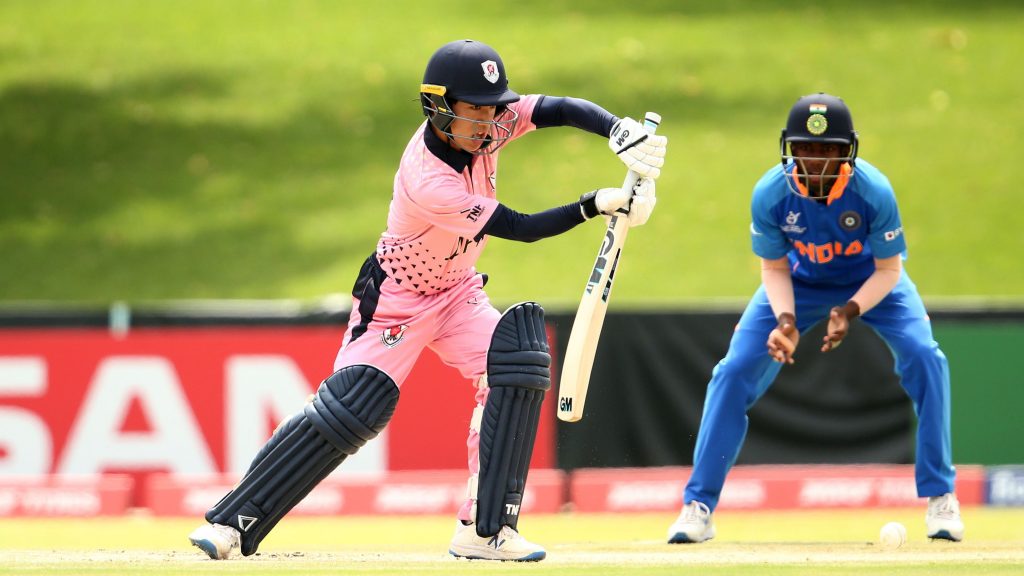
Japan (16th place)
The Associate fairy tale of the U-19 World Cup, Japan drew a very tough group with India, New Zealand and Sri Lanka. Japan’s opening match of the tournament against New Zealand was rained out before taking on current champions India in their second match. India flexed their muscles on the debutants bowling the Japanese out for 41 chasing the total with ten wickets in hand. In their final group match, Japan once again batted first, getting bowled out for 43 with Sri Lanka losing just the one wicket chasing the total.
In the plate finals, Japan took on the might of England, after being sent in to bat the Japanese looked solid at 2-78. Before a tail collapse saw Japan fall to all out for 93. A total England would go on to chase 9 down. In their final two matches of the tournament Japan scored 118 against Canada and 115 against Nigeria, however, went down in both matches. Despite going winless in the competition the development of cricket in Japan will be all the better for the experience. 17-year-old Wicketkeeper batsmen Shu Noguchi finished leading run-scorer for the Japanese with 77 runs for the tournament.
READ MORE: DANIEL BESWICK’S PIECE ON THE COVERAGE OF JAPAN AT U19CWC
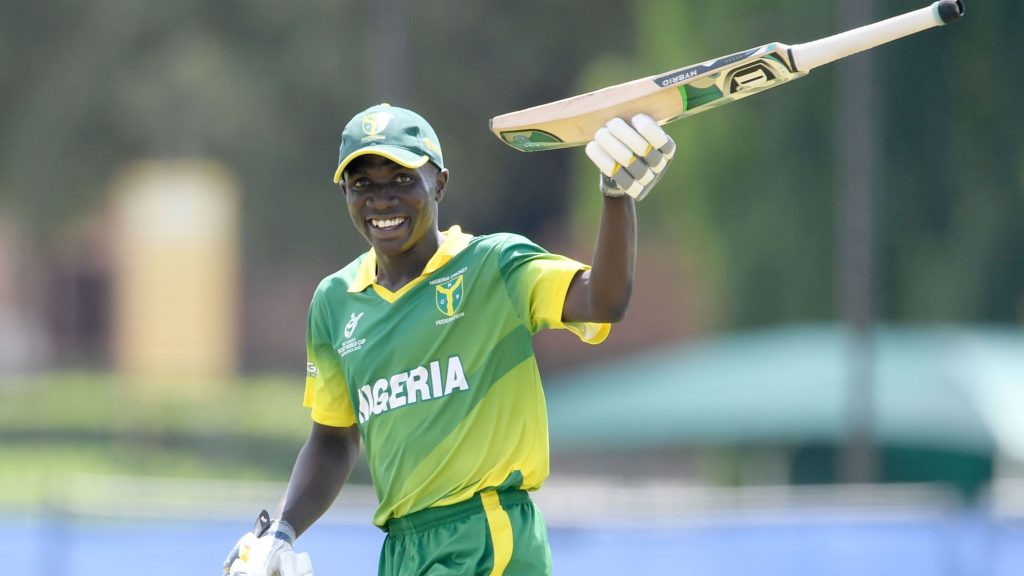
Nigeria (15th place)
Nigeria came into the competition with their tails up after defeating Kenya and Namibia to claim the African qualifiers. Like Japan, Nigeria was given a tough assignment grouped with the West Indies, Australia and England. Their opening task coming against the 2018 runners up in Australia, Nigeria were bowled out for 61 with the Australians chasing the score with ten wickets in hand. In their final two group games, the Nigerians were dismissed for 57 against the West Indies and 58 against England.
In the plate playoffs, Nigeria faced Sri Lanka who were dominant setting Nigeria 306 for victory with the Nigerians bowled for 73. Nigeria set a tournament-high when taking on the UAE setting 145 for victory. The UAE chasing it down three wickets down. In the 15th place playoff Nigeria took on fellow debutants Japan, Nigeria lost the toss and bowled first with pace bowler Ifeanyichukwu Uboh taking 5-23 against the Japanese to restrict Japan to 115 all out, a total which Nigeria chased easily with the loss of just two wickets.
Thanks to the five-wicket haul against Japan, Uboh finished the competition with seven wickets at an impressive average of 6.5. to be Nigeria’s best with the ball.
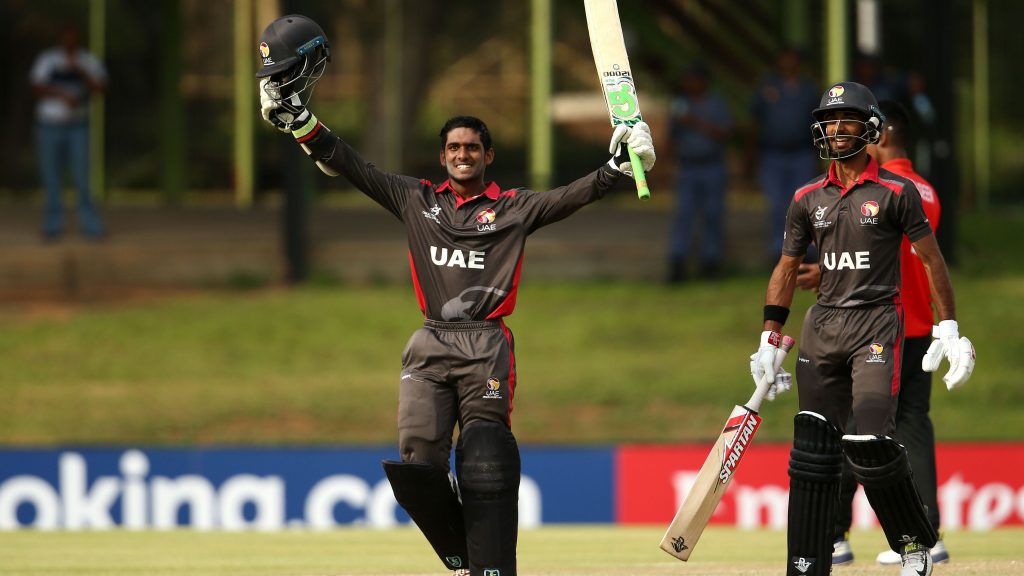
UAE (14th place)
The UAE were given a fighting chance of progressing from their group after being drawn alongside Canada, Afghanistan and South Africa. The UAE won their first match of the tournament against Canada after an unbeaten century from Jonathon Figy saw the Emiratis chase 232 with eight wickets in hand. UAE came crashing back down to earth in their second match being bowled out for 105 chasing 265 against Afghanistan. The UAE needed to win their last match against South Africa to progress to the finals however fell short by 23 runs chasing 300 in a rain-affected matchup.
In the plate playoffs, the UAE took on Scotland setting 249, with Scotland chasing the score three wickets down. This saw the UAE take on Nigeria, The Emiratis bowled Nigeria out for 145 chasing the score three down. Their final match saw the UAE take on Canada, Despite a consecutive four-wicket haul for Rishabh Mukherjee, the UAE could not defend 174 with Canada making the total six wickets down.
Off-spinner Aryan Lakra finished leading wicket-taker for the UAE and eighth for the tournament with 11 wickets.
Canada (13th place)
Now somewhat a stalwart of the tournament taking part in their seventh edition of the world cup the Canadians were looking to improve on their 12th place finish in New Zealand two years ago.
As discussed during the recent EC Podcast (you can list above or via this link) the lack of proper outdoor preparations prior to the event after none of the Canada players were included in a development squad prior, things got off to a rocky start losing their opening match to the UAE before losing heavily to the South Africans in their second match. Their final match against Afghanistan was abandoned due to rain which saw Canada finish last in their group.
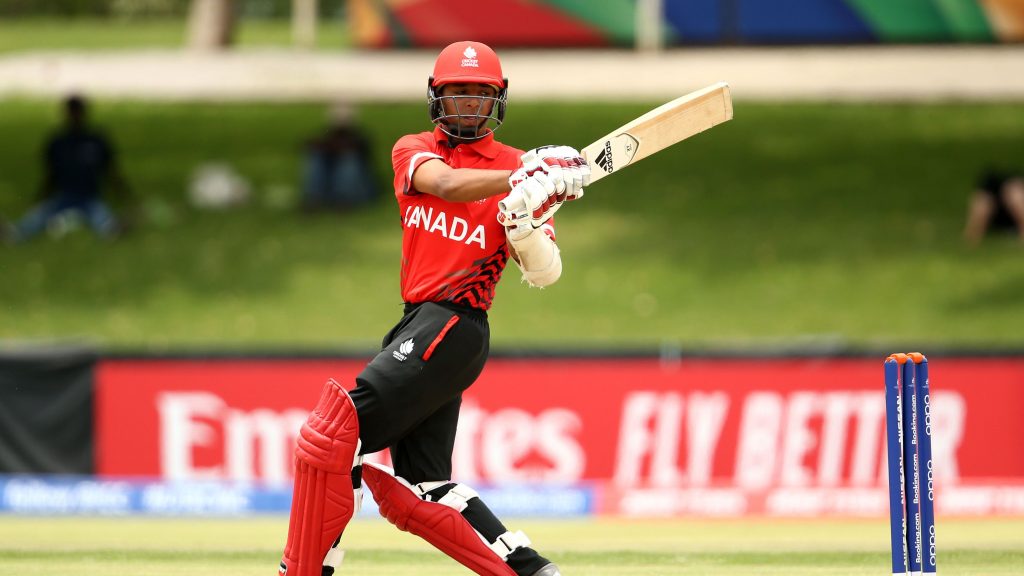
The Canadians met the Zimbabweans in their plate quarter-final with Zimbabwe scoring 271 batting first, Canada could only manage 176 in response. In their next match against Japan, Canada set a massive 300 thanks to Nicholas Manohar’s century opening the bat, a six-wicket haul to pace bowler Akhil Kumar saw Canada win the match by 182 runs. In the 13th place playoff against the UAE, Canada chased down 174 six wickets down to claim 13th place for the tournament.
Akhil Kumar thanks largely to his six-wicket haul in the plate semi-final finished top wicket-taker for the competition with 16 scalps at an average of 15.
Scotland (12th place)
Scotland were back at the U19 World Cup after not qualifying in 2018. Scotland drew a reasonable group alongside Zimbabwe, Pakistan and Bangladesh. Optimism was low early after being bowled out for 75 against Pakistan and 89 against Bangladesh to start the competition. In their final group match, Scotland set Zimbabwe 140 for victory with Zimbabwe chasing it two wickets down.
They met the UAE in the plate finals chasing the UAE’s total of 250 three wickets down to progress to the next round. They met Sri Lanka who set the Scots 277 from their 50 overs. In a rain-affected second innings Scotland fell 97 runs short. Once again matched up with Zimbabwe, the Scots bowled first and were set a hefty chase of 354. Despite Daniels Cairns gritty 58, his side was bowled out for 182. With Scotland finishing 12th in the tournament. Opening batsmen Uzzair Shah finished leading run-scorer for the Scots with 148 runs for the competition.
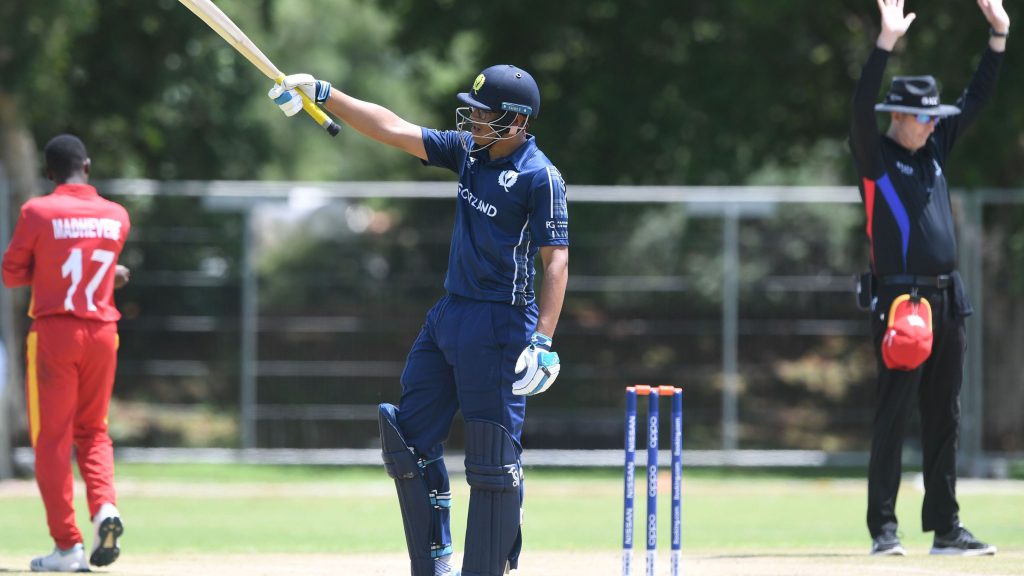
Zimbabwe (11th place)
Although not an Associate, Zimbabwe came into the tournament after its administration’s brief ICC suspension, and carried great hopes of progressing to the second round for the first time since 2006 when drawn alongside Bangladesh, Pakistan and Scotland. Despite a nine-wicket loss to Bangladesh in their rain-affected first match Zimbabwe came close to pinching an upset defeat against Pakistan falling 38 runs short of Pakistan’s 294 total. In their final match, Zimbabwe dismissed Scotland for 140 before an absolute demolition job by Tadiwanashe Marumani which saw the Zimbabwean belt 85 off 55 balls seeing Zimbabwe past the total in 17 overs.
Zimbabwe won their opening play quarter-final against Canada defending 271 before meeting England. Chasing 286 the Zimbabweans were bowled out for 211 setting them for an 11th place playoff with fellow group members Scotland. Marumani and Zimbabwe’s love affair with Scotland continued with the opening batsmen scoring 90 in his sides mammoth 354 total. Leg spinner Priviledge Chesa’s five-wicket haul saw the Zimbabweans claim 11th spot with a 172 run victory.
Zimbabwe’s impressive top order saw three batsmen finish inside the top ten run-scorers for the competition. Emannuel Bawa and Milton Shumba both eclipsed 200 runs for the competition with Tadiwanashe Marumani’s total of 257 seeing him finish fourth leading run-scorer for the competition.







